
Video: Hypnotherapy’s meditative effect
Paul reviews how his clients experience meditative benefits as well.

Paul reviews how his clients experience meditative benefits as well.


Bruxism or jaw clenching/teeth grinding can be very painful. [info]

 The media we consume daily has an impact on our thinking, behavior, and emotions. If you’ve fallen into a pattern of regularly watching or listening to the news, the majority of what you’re consuming is likely about the coronavirus (COVID-19) crisis.
The media we consume daily has an impact on our thinking, behavior, and emotions. If you’ve fallen into a pattern of regularly watching or listening to the news, the majority of what you’re consuming is likely about the coronavirus (COVID-19) crisis.
And while staying up to date on local and national news, especially as it relates to mandates and health updates, is critical during this time, experts say over-consumption of the news can take a toll on your physical, emotional, and mental health.
With that in mind, the goal is to find the balance between feeling informed and educated on the situation at hand while not becoming totally overwhelmed by it. After all, when good news is available, or the situation changes for the better, it will come to you, you won’t need to seek it out.
We asked several mental health experts to explain how this constant stream of disastrous news is adding to our stress levels and increasing symptoms of anxiety and depression. Plus, tips on how to navigate the 24-hour news cycle, while still managing and protecting your mental health.
According to the Centers for Disease Control and Prevention (CDC), the COVID-19 outbreak is proving to be stressful for most people. During an infectious disease outbreak, the CDC says stress can include changes in sleep or eating patterns, worsening of mental health conditions, fear and worry about your health and the health of loved ones, and difficulty concentrating.
Compounding this stress is the constant stream of news about COVID-19 that we are exposed to on a daily, hourly, and even minute-by-minute basis. “Unfortunately, a lot of the news we consume today isn’t so much reporting as it is a way of keeping people addicted to the news cycle,” says licensed psychologist, Logan Jones, PsyD.
Logan Jones, PsyD.
Because sensational headlines get more attention, Jones says media outlets often end up focusing on disaster reporting—and rarely any positive news. “Consuming too much of this kind of news, whether actively or passively, can be very toxic, and what you hear has an impact on your mood,” he says.
Even if it’s just noise in the background, Jones says an alarmist news broadcast will still have a negative effect on your psyche.
“It can be damaging to constantly be reading the news because constant exposure to negative information can impact our brain,” says Annie Miller, MSW, LCSW-C, LICSW. When we experience a threat, Miller says our brain activates the fight or flight response, and the systems in our body react accordingly.
Consuming the news can activate the sympathetic nervous system, which causes your body to release stress hormones like cortisol and adrenaline. Then, when a crisis is happening, and we are experiencing this stress response more frequently, Miller says physical symptoms may arise. Some of the most common symptoms are fatigue, anxiety, depression, and trouble sleeping.
This emotional toll and negative effect on the psyche was demonstrated in a study1 that found people who watched negative material, as compared to those who watched positive or neutral material, showed an increase in both anxious and sad moods only after 14-minutes of viewing television news bulletins and programs.
In addition to an increase in anxious and sad moods, the researchers also found the results to be consistent with the theories of worry that implicate negative mood as a causal factor in facilitating worrisome thought.
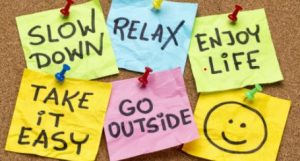 Like a lot of things, the key to staying healthy is moderation. “Staying informed is not just responsible, but critical to our safety right now, explains Kellie Casey Cook, M.S., licensed professional counselor.
Like a lot of things, the key to staying healthy is moderation. “Staying informed is not just responsible, but critical to our safety right now, explains Kellie Casey Cook, M.S., licensed professional counselor.
To strike the balance of moderation while staying informed, the World Health Organization (WHO) recommends seeking news about COVID-19 mainly so that you can take practical steps to prepare your plans and protect yourself and your loved ones. Once you have that information, it’s time to turn the news off.
And to help alleviate the mental and emotional toll this is all taking, the CDC recommends taking breaks from watching, listening, or reading news stories, especially since hearing about a pandemic repeatedly is upsetting. With that in mind, here are nine expert tips for managing the news.
Limit intake
Leaving your television on or streaming live news broadcasts on your phone while tending to other business can take a toll on you emotionally. Rather than having the news be your background noise, Haley Neidich, LCSW, is recommending less than 30 minutes per day total of social media scrolling and news exposure combined.
Scheduling a “worry time” each day is a common strategy for managing the symptoms related to anxiety disorders. Miller says this technique is also helpful for watching and digesting the news cycle. “Scroll through the news, acknowledge anything you are worried about, and make plans for addressing any issues,” she says.
Then, choose a time that is far enough away from your bedtime so that your brain has time to settle before you go to bed. The idea, says Miller, is to minimize worry and news intake by scheduling it into your day. After your worry time is over, Miller says to put the news aside and remind yourself that it’s not time to worry right now and move onto other things. “Your brain will eventually get used to this new routine and it will start to be able to let worries go more easily,” she adds.
Once you commit to limiting the amount of news you watch, Ashleigh Edelstein, a licensed marriage and family therapist, says the next step is to gauge how you feel 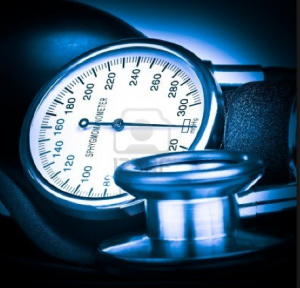 before and after watching to understand how it’s affecting you.
before and after watching to understand how it’s affecting you.
She says to do a quick check and ask yourself the following question: “Do you feel informed and calm, or panicked, angry, and/or pessimistic?” If it’s the latter, Edelstein says to consider how much news you’re consuming and the sources you’re getting it from, and make an intention to reduce your consumption.
“A healthy way to approach the news cycle is to rely on outlets you know are credible, have experienced reporters who do their research, and provide balanced perspectives,” says Jones. He also says to be mindful of how much you consume. “You probably have set times every day when you eat, and you can do the same with news. Check-in with what’s going on in the world by consuming the sources that nourish you, and then move on to something else, he says.”
If watching the news is triggering regular symptoms of anxiety or depression, Neidich is recommending no exposure at all. Instead, she suggests that you ask a close friend or loved one to filter the news for you. Then, have them check in with you a few times per week about the most important updates. “There is no reason that any of us need to be exposed to the news beyond that,” says Neidich.
Another point to consider, says Cook, is to give yourself permission to limit your exposure to certain people right now. “If you have a family member who is constantly posting links to questionable articles from unknown sources, go ahead and unfollow them for now.
If a friend or coworker insists on having current events related conversations that don’t feel productive and only serve to increase your anxiety, consider putting some boundaries in place with them,” she says. Something along the lines of, “Hey, I’m really starting to feel overwhelmed by this topic, so I’d prefer if we’d change the subject,” can be effective with some people.
 For most of us, consuming some form of news each day is essential. To help combat feelings of fear, anxiety, and worry that often accompany negative news, Edelstein suggests choosing to do something positive or healthy immediately after, like taking a walk, calling a friend, or working on a hobby. “Because things are so uncertain, we need healthy distractions right now to stay grounded and resilient,” she says.
For most of us, consuming some form of news each day is essential. To help combat feelings of fear, anxiety, and worry that often accompany negative news, Edelstein suggests choosing to do something positive or healthy immediately after, like taking a walk, calling a friend, or working on a hobby. “Because things are so uncertain, we need healthy distractions right now to stay grounded and resilient,” she says.
Taking steps to minimize stress during this difficult time is essential for both your physical and mental health. While watching the news can provide you with critical information about protecting yourself and others, taking in too much information can be overwhelming and detrimental to your mental health.
If you’re having trouble managing a mental health condition or you’re concerned about new symptoms, call your doctor. Also, if you’re thinking about suicide or suspect someone you love is in danger of hurting themselves, seek help immediately. Call 911, and if possible, stay with a friend or family member until you are in the care of a mental health expert.
By: Sara Lindberg
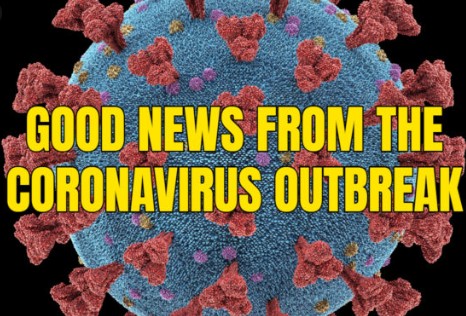
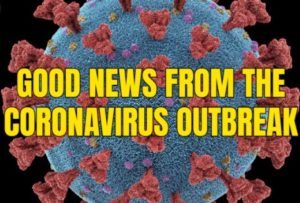 1. Of about 80,000 people sick from COVID-19 in China, more than 70% have recovered and been discharged from hospitals. Per the World Health Organization last week, “Of the 80,000 reported COVID-19 cases in China, more than 70% have recovered and been discharged.”
1. Of about 80,000 people sick from COVID-19 in China, more than 70% have recovered and been discharged from hospitals. Per the World Health Organization last week, “Of the 80,000 reported COVID-19 cases in China, more than 70% have recovered and been discharged.”
2. Scientists have figured out how the novel coronavirus breaks into human cells, which will help significantly in developing treatments. After scientists revealed the first picture of how the novel coronavirus binds with human respiratory cells to produce more viruses, researchers in China have solidified images all the way down to the level of the atoms at the binding points, according to Live Science. With this news, understanding how the virus enters cells will significantly aid researchers in finding drugs and vaccines to fight the virus.
3. Due to high levels of self-quarantine, Codogno, one of the two coronavirus clusters in Italy, has reported significantly fewer infections per day compared to 35 cases per day at the beginning of the outbreak, just five new infections were announced last week by Codogno’s mayor, Francesco Passerini, according to the U.S. News and World Report.
“It is a war. It is a war, but we have every possibility of winning,” Passerini said. “Unlike with our grandfathers, who went physically into battle for our freedom, we are being required to show responsibility — responsibility and calm.”
4. Scientists in Canada have made massive breakthroughs in an effort to develop a vaccine. A team of Canadian scientists has finally isolated and grown copies of the coronavirus, which may now help scientists study the pathogen to develop better testing, treatments, vaccines, and gain a better understanding of its biology, the team said in a statement alongside the New York Post.
5. China is testing five different vaccine options, claiming it could have a vaccine ready by next month. Eight different institutes in China are working on five different inoculations to battle the novel coronavirus, according to the South China Morning Post.
“According to our estimates, we are hopeful that in April some of the vaccines will enter clinical research or be of use in emergency situations,” said Zheng Zhongwei, director of the National Health Commission’s Science and Technology Development Center.
While it’s true that it would take at least 12 to 18 months to provide a safe vaccine to general public, under Chinese law, they could be released sooner for urgent use in a major public health emergency, provided the benefits outweigh the risks, noted the New York Post.
6. Vaccination trials in the U.S. are already underway. A trial of Moderna’s vaccine has already kickstarted at Kaiser Permanente under Washington’s Health 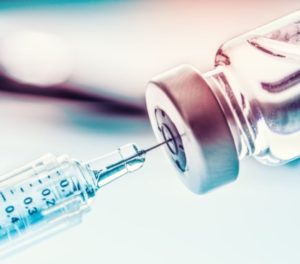 Research Institute in Seattle, of which will hopefully confirm the safety of the vaccine prior to mass production.
Research Institute in Seattle, of which will hopefully confirm the safety of the vaccine prior to mass production.
7. A team of infectious disease experts calculated the fatality rate of Wuhan’s coronavirus outbreak is about 1.4%, drastically lower than earlier estimates. While this estimate and data applies directly to Wuhan, where the novel coronavirus outbreak began, it offers a hopeful guide to the rest of the world as it notes significantly lower estimate of earlier stats around 3%. A full breakdown of the data can be found at Stat News.
8. Distilleries across the U.S. are making their own hand sanitizers and giving it away for free. Perhaps many Americans can calm down on the panic buying, as according to the Associated Press, distilleries across the country are using high-proof alcohol to make hand sanitizer, and divvying it out for free, or by donation to combat the novel coronavirus.
9. Air pollution has plummeted in cities with high numbers of quarantined individuals, Venice’s waters are running clear. Analysts from the Washington Post have noted a drastic decrease in major greenhouses gases over Europe as individuals self-quarantine and cars stay parked at home. While it’s little comfort to a country ravaged by the novel coronavirus, it highlights the impact humans can make on the environment.
“I expect pollution to drop even further as the particles in the atmosphere get either dispersed or absorbed,” Emanuele Massetti, an expert on the economics of climate change at Georgia Tech University who has studied Italy’s climate policies, told the Washington Post. “In a few days, they will enjoy the cleanest air ever in northern Italy.”
10. A Johns Hopkins researcher has claimed antibodies from recovered coronavirus patients could help protect people at risk. A treatment that can be made readily available under urgent circumstances, a team from Johns Hopkins alongside many other researchers are studying whether or not the antibodies of those recovered from the coronavirus could help protect at-risk humans from the virus.
“Deployment of this option requires no research or development,” immunologist Arturo Casadevall told Science Alert. “It could be deployed within a couple of weeks since it relies on standard blood-banking practices.” Not to mention, a Japanese pharmaceutical company is nearing approval of the treatment.
11. South Korea recoveries are starting to outnumber new infections. Facing the largest epidemic outside of China, South Korea reported more recoveries from the coronavirus than new infections on Friday for the first time since its outbreak emerged in January, as a downward trend in daily cases raised hopes that Asia’s biggest epidemic outside China may be slowing, according to India Today.
 12. China is getting its feet back on the ground, opening parks and athletics, loosening travel restrictions. As the novel coronavirus comes under control in China, parks and tourist attractions have reopened across the country, alongside loosened travel restrictions.
12. China is getting its feet back on the ground, opening parks and athletics, loosening travel restrictions. As the novel coronavirus comes under control in China, parks and tourist attractions have reopened across the country, alongside loosened travel restrictions.
“The National Health Commission said on Thursday that the outbreak had passed its peak, and the figures appear to support its claim,” said the South China Morning Post. “On Friday, authorities in mainland China reported just 11 new Covid-19 cases, of which four were in Hubei.” According to ESPN, even professional basketball has reemerged in Asia.
13. China has also closed its last coronavirus hospital, not enough new cases to support them. China has shut down all 16 temporary coronavirus hospitals in Wuhan as cases of coronavirus have begun to dwindle. “The final group of 49 patients walked out of the Wuchang temporary hospital in the capital of Hubei province on Tuesday afternoon to cheers,” according to the Xinhua news agency.
14. Australian researchers are in the midst of testing two drugs as cures to the virus. Scientists in Australia claim to have identified how the body’s immune system fights the novel coronavirus.
Published in Nature Medicine journal on Tuesday, the research shows people are recovering from the virus like they would from the flu. “This [discovery] is important because it is the first time where we are really understanding how our immune system fights novel coronavirus,” study co-author Prof Katherine Kedzierska told BBC News.
15. Numerous businesses have stepped up to solve the crisis. Restaurants, sports, and businesses are all stepping up to combat the community effects of the novel coronavirus.
The sports world is raising money for stadium employees, Uber Eats is divvying out free delivery to help independent restaurants, professional soccer players are entertaining viewers with a FIFA tournament, restaurants are doling out free food to those in need, and Bill Gates is funneling out millions of dollars to speed up development of a coronavirus treatment, to name just a few out of dozens.
16. Apple, Starbucks reopening all stores in China. While stores and restaurants across the U.S. have closed up shop, both Apple and Starbucks have reopened all of their stores in China as the novel coronavirus spread slows across the country.
17. MetroHealthMedical Center has developed a coronavirus test that gives results in hours, not days. “MetroHealth Medical Center becomes the first hospital in the state that can now test COVID-19 samples at its laboratory with results available after just two hours,” released News 5 Cleveland. While supplies are limited, it notes a significant step toward expansive testing of the novel coronavirus.
18. Scientists in Israel have also noted the potential to announce development of a coronavirus vaccine within weeks. Israeli scientists are nearing development of
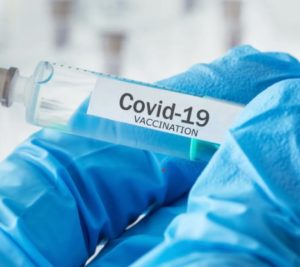 the first vaccine to combat the novel coronavirus, according to Science and Technology Minister Ofir Akunis. The vaccine could be ready within a few weeks and available in 90 days, according to a release.
the first vaccine to combat the novel coronavirus, according to Science and Technology Minister Ofir Akunis. The vaccine could be ready within a few weeks and available in 90 days, according to a release.
19. A San Diego biotech company is developing a coronavirus vaccine in collaboration with Duke University and National University of Singapore. As the race to develop a vaccine for the novel coronavirus continues globally, the San Diego-based biotech company, Arcturus Therapeutics, is working on creating one at its lab.
The company is working alongside Duke NUS-Medical School, a partnership between Duke University and the National University of Singapore. While developing a vaccine that works hasn’t yet proven impossible, “The major challenge with vaccines is the size of the dose and the feasibility of manufacturing,” President and CEO, Joseph Payne, told CBS8.
20. A Japanese flu drug has proven effective in treating the novel coronavirus. Zhang Xinmin, an official at China’s science and technology ministry, said favipiravir, developed by a subsidiary of Fujifilm, had produced encouraging outcomes in clinical trials in Wuhan and Shenzhen involving 340 patients, according to The Guardian. “It has a high degree of safety and is clearly effective in treatment,” Zhang told reporters on Tuesday.
21. China has reported just one new domestic coronavirus infection for a second day in a row. “For the second consecutive day there was only one more fresh infection in Wuhan, the central city where the virus first emerged late last year,” said the National Health Commission. New cases in surrounding Hubei province have now been in the single digits for the past seven days, down from a peak of several thousand per day in early February, said Daily Mail.
22. Communities are coming together to help their neighbors. Neighbors across the country are stepping up to make grocery runs for those who can’t leave their homes. Local services have also reached out to the Seattle community to encourage those in need of help, to utilize the opportunities available to them.
23. A 103-year-old Chinese grandmother has made a full recovery from COVID-19. After being treated for less than a week, this grandma is going for the gold as the oldest coronavirus patient to recover in China, and motivating elderly across the globe to retain hope.
By: Christina Ausley, Seattle PI

Self care is more important now that it has been in a long time. Stay healthy & safe.